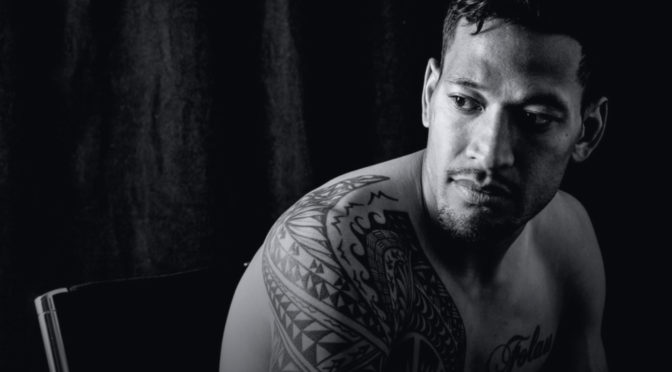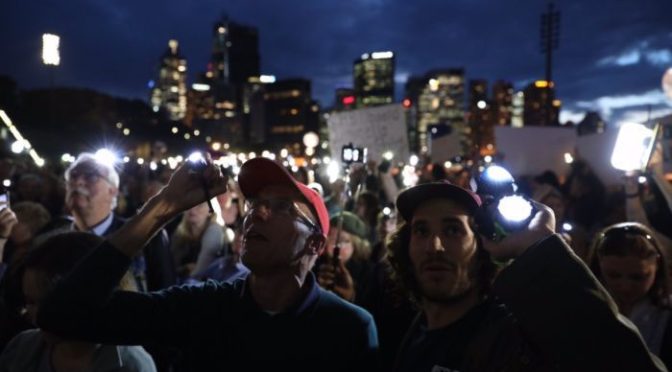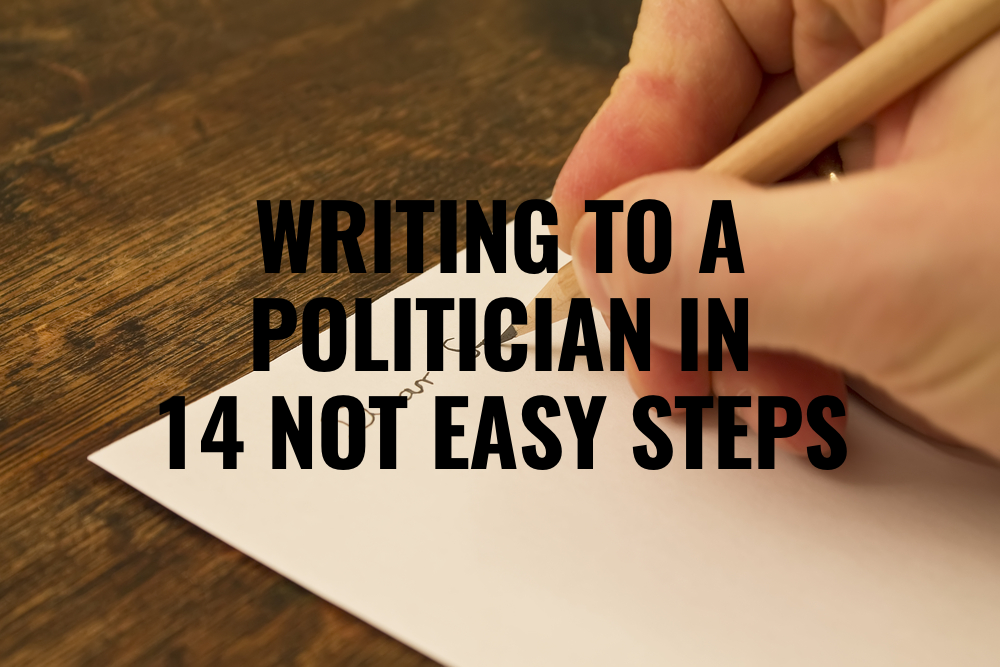This picks straight up from where yesterday’s post left off — as part of an explanation of how I understand generous pluralism, within a broader political theology, because a paper will be released by our denomination’s politics, culture and theology committee (GIST) in coming months.
Fourth Point: The ‘Politics’ of the Kingdom
Because to be ‘made in the image of God’ is to be made to spread the presence of God over the face of the earth as his ruling-representatives who are like him — so that Israel’s task as a “kingdom of priests” is a continuation of the created purpose for humans, to be re-created in the image of Jesus and brought into the Kingdom of Heaven by God’s anointed king (the Christ), the Gospel is inherently political.
Even the word Gospel — ‘good news’ — was a word used in the Roman empire to announce the victory of Caesar, or a new Caesar taking the throne. Mark’s Gospel, which announces as Jesus ‘the Son of God’ goes toe to toe with imperial propaganda that said the same thing about Caesar Augustus (claimed to be the Son of God in various gospels circulated around the Empire).
The nature of the Kingdom of God, in the Old Testament, was to be different — Holy — set apart — generative — rather than destructive. Israel was to be a subversive presence in the Ancient Near East because of its vision of the dignity and created purpose of every human; and because instead of having ‘image of God kings’ who were the images of violent domineering gods who rule through chaos and destruction (like the gods of the Enuma Elish — Babylon’s creation story), Israel would not have a ‘king like the nations’, but Yahweh as king, and, failing that, Yahweh’s anointed. So, Israel’s little exercise with Saul, when they ask for a ‘king like the nations’ is a picture (in Samuel) of ‘life by the sword’ — life under a domineering, proud, military king like the nations — but Hannah’s song at the start of Samuel sets the scene for the nature of God’s king and kingdom (much like Mary’s song does in Luke).
Both depict an upside down kingdom where the proud are humbled, and the humble exalted.
| Hannah’s Song (1 Samuel 2) | Mary’s Song |
| “There is no one holy like the Lord;
there is no one besides you; there is no Rock like our God.
3 “Do not keep talking so proudly or let your mouth speak such arrogance, for the Lord is a God who knows, and by him deeds are weighed.
4 “The bows of the warriors are broken, but those who stumbled are armed with strength. 5 Those who were full hire themselves out for food, but those who were hungry are hungry no more. She who was barren has borne seven children, but she who has had many sons pines away.
6 “The Lord brings death and makes alive; he brings down to the grave and raises up. 7 The Lord sends poverty and wealth; he humbles and he exalts. 8 He raises the poor from the dust and lifts the needy from the ash heap; he seats them with princes and has them inherit a throne of honor. |
“My soul glorifies the Lord
47 and my spirit rejoices in God my Savior, 48 for he has been mindful of the humble state of his servant. From now on all generations will call me blessed, 49 for the Mighty One has done great things for me— holy is his name. 50 His mercy extends to those who fear him, from generation to generation. 51 He has performed mighty deeds with his arm; he has scattered those who are proud in their inmost thoughts. 52 He has brought down rulers from their thrones but has lifted up the humble. 53 He has filled the hungry with good things but has sent the rich away empty. 54 He has helped his servant Israel, remembering to be merciful 55 to Abraham and his descendants forever, just as he promised our ancestors.” |
These songs outline the character of the politics of God, and his king. Jesus is the king the Old Testament has been waiting for. God-as-king.
Saul is not the idealised version of the ‘image of God’ who will lead God’s people. Neither, for what it’s worth, is David — though he is a “king after God’s heart” — his rape of Bathsheba is a picture of Adam-like kingship where he, like Eve in Eden (the verbs are the same) sees, desires, and takes something (in this case someone) God forbade taking. Solomon, his son, builds the temple — then builds a house for himself bigger than the Temple, and breaks all the Deuteronomic rules for kingship — including going back to Egypt to get military machines, and marrying many wives to solidify his political power, and amassing wealth. Kingship in the Old Testament ends up (like priesthood) being viewed as negative and not fulfilling the image bearing purpose humanity was made for. The Old Testament ends with the hope (or expectation) that Yahweh might bring a ‘day of the Lord’ where he will establish a Davidic king forever, who would truly end the political-theological exile from God, restoring his dwelling place (the Temple) and presence with his people, and in the world — and restoring a people who might take up our created purpose once again.
Jesus is crowned as the king of heaven and earth in his crucifixion, and ultimately in his ascension as he enters the throne room of heaven as the victorious son of man (pictured by Daniel); the fully divine-human son of man and son of God is now reigning in heaven (Acts 2, Ephesians 2-3), and his kingdom — a new polis — begins on the earth in the church — the new ‘temple’ — God’s presence in the world. We are ambassadors of the kingdom, priests, and ministers of the reconciliation God will work in and for all things as the first fruits of the new creation and Temples of the living God (Acts 2, Colossians 1, 1 Corinthians 6, 15, 2 Corinthians 5, 1 Peter 2, Revelation 21-22).
The still incarnate (human) Jesus is reigning in the throne room of heaven and we are already united in and to him by the Spirit, and raised and seated with him, so that we are ‘positioned’ there too; and he continues to serve as the true image bearer of God, the priest and king who intercedes with the Father on our behalf as we pray. His victory unites Jews and Gentiles in this new, re-created humanity with this political task of being his image bearing regents who spread his kingdom across the face of the earth (Matthew 28:18-20). The Great Commission is not just a call to ‘make converts’ — but to make disciples; citizens; new-creations who bear the image of Jesus in the world, and, by the in-dwelling presence of the Spirit function as God’s faithful presence — the body of Christ — in the world.
The church, then, is an alternative political kingdom to the kingdoms of this world; a new polis, participating in the ‘upside down kingdom of the cross’ — those who ‘take up our cross and follow him’ — so our political strategy is not to be Egyptian, Babylonian, Roman or like the beastly self-centered and proud kingdoms caught up in service of Satan, and the gods (Elohim) opposed to Yahweh in the heavenly real. This kingdom is cross-shaped. When we offer ourselves as a living sacrifice “in view of God’s mercy to us” in Jesus, as our true worship we are able to avoid the deforming patterns of this world, and display a challenging (perhaps subversive) alternative, trusting God to vindicate us even as we are confronted with evil (even an evil state, and even as we submit to such power (Romans 13), like Jesus did). Our unity as believers (across kingdom lines that formerly divided us) is a testimony to the victory of Jesus over the powers and principalities, and the “ruler of the prince of the air” (Ephesians 2-3). The victory of Jesus is a victory over the forces arrayed against God in the heavenly realm, establishing (as if it was in doubt) that Yahweh is the most high; but also reversing the distribution of the nations under alternative spiritual authorities in Deuteronomy 32 and at Babel. Where in the past “God overlooked the ignorance” caught up with idolatry, because Israel was his inheritance among the nations, now he commands all people everywhere to repent — recognising the reality that “in him we live and breathe and have our being” (Acts 17).
A faithful presence — as re-made image bearers — is distinguished and distinguishable from fallen humanity and the political kingdoms built on the cursed patterns of human relationships described in Genesis 3; a fracturing of our role to be co-rulers — representative regents — with God, and one another, in Genesis 1. The distinction is cruciformity; embodying the nature and character of the God revealed to us in the crucified Jesus; and the values expressed in Hannah and Mary’s songs.
It’s also important to remember that though we are God’s presence in the world, and called to imitate Jesus, we are not God (we are not judge, jury, and executioner, nor are we saviour or king — we are ambassadorial/priestly presence, this is nicely captured in the person of Paul, who seems to adopt the motif of the ‘suffering servant’ in his conception of his role as apostle to the Gentiles, though who is able to say “was Paul crucified for you” while also calling us to “imitate him as he imitates Jesus” (1 Cor 11:1), carrying around the ‘death of Jesus in his body so that the life of Jesus may be made known (2 Cor 4), and becoming a suffering “fool” for Christ rather than adopting the power-based rhetoric of the world while ‘demolishing worldly arguments’ that set themselves up in opposition to God (2 Cor 10-11)). And, indeed, the church is not tasked with ‘wielding the sword,’ though governing authorities may well be Christians. Our job is not to change hearts — that happens by God’s Spirit as an act of grace and recreation (Romans 8, Ephesians 2); our job is to proclaim and live the Gospel, the power of God (Romans 1:16, 1 Corinthians 1-2) — to hear the words of Jesus and put them into practice as we live wise and good lives amongst the pagans (Matthew 7:24-27, 1 Peter 2, Romans 12 etc). Our role is not to condemn people to judgment, or to stand by and celebrate that judgment (like Israel may have been tempted to as God opposed the nations who opposed them), our task is to embody the virtues of the Kingdom; loving our enemies, turning the other cheek, praying for those who persecute us and to invite people who see the King at work in us to join us in repenting as we proclaim his victory and invitation to be re-created. This might involve calling sin sin (like John the Baptist did with Herod), but it will necessarily involve the proclamation of the victory and reign of Jesus as ambassadors in Rome would carry around the ‘Gospel’ of Caesar.
So. My “political theology” and my account of the posture we are to take is first captured in this idea that we, the church, are a polis called to live as God’s faithful (cruciform) presence in the world; challenging and subverting worldly empires that are beastly and cursed, so that we might invite people to rediscover the life they were created for — reflecting the nature of God as we worship and serve him.
Fifth Point: Mapping the Terrain
While it is possible to articulate a ‘political theology’ against the backdrop of the west — whether reflecting back to the halcyon days of Christendom, or a nobler ‘pre-Christendom’ age, or this new ‘post-Christian’ era we find ourselves in, I believe a Christian political theology and/or posture worth its salt is one that coherently guides the public activities of Christians in any time or place; a Godly political theology is not simply a theology that operates in exile in Babylon, or in first century Israel, or for the church in Rome in the second or tenth centuries, or in 21st century China. A proper political theology should not be something we simply form against our own context, but one that forms the way we engage in our context.
This is not to say we can’t (or shouldn’t) observe, or learn from, the history of the west and its intimate relationship with Christianity (see, for eg Tom Holland’s Dominion for a narrative account of Christianity’s profound shaping of the west). We should observe the transition of epochs or ages in the west from pagan pre-Christian, to Christian, to post-Christian — noting that post-Christianity is not simply a return to the pagan preconditions of the first few centuries of the church, but that post-Christian governments are defining themselves against Christianity as though it is intimately involved in the wielding of the sword, and that often (to quote Mark Sayers) citizens of the west ‘want the kingdom but not the king’ — or, as Holland would express it ‘secularism is a Christian development’ (Charles Taylor would agree on that front, seeing ‘secularity’ as a product not just of Christianity but reformation). In his inaugural lecture at Cambridge, De Descriptione Temporum, C.S Lewis made this point about these three different western epochs.
“The christening of Europe seemed to all our ancestors, whether they welcomed it themselves as Christians, or, like Gibbon, deplored it as humanistic unbelievers, a unique, irreversible event. But we have seen the opposite process. Of course the un-christening of Europe in our time is not quite complete; neither was her christening in the Dark Ages. But roughly speaking we may say that whereas all history was for our ancestors divided into two periods, the pre-Christian and the Christian, and two only, for us it falls into three-the pre-Christian, the Christian, and what may reasonably be called the post-Christian. This surely must make a momentous difference. I am not here considering either the christening or the un-christening from a theological point of view. I am considering them simply as cultural changes. When I do that, it appears to me that the second change is even more radical than the first. Christians and Pagans had much more in common with each other than either has with a post-Christian. The gap between those who worship different gods is not so wide as that between those who worship and those who do not. The Pagan and Christian ages alike are ages of what Pausanias would call the δρωμενον the externalised and enacted idea; the sacrifice, the games, the triumph, the ritual drama, the Mass, the tournament, the masque, the pageant, the epithalamium, and with them ritual and symbolic costumes, trabea and laticlave, crown of wild olive, royal crown, coronet, judge’s robes, knight’s spurs, herald’s tabard, coat-armour, priestly vestment, religious habit for every rank, trade, or occasion its visible sign.”
Taylor sees the ‘secularisation’ of the world emerging from its disenchantment (Lewis’ diagnosis is essentially the same, though his sense of what caused that change, technology, is only an aspect of Taylor’s account), and from the post-Reformation emergence of many options for belief (pluralism) within any particular society or nation, where previously nations in the west (and non-Christian nations) had enjoyed a sort of political, cultural and religious order that functioned as a hegemony. That divinely order and authoritative ‘architecture of belief’ shifted, and we were left defining our own sense of the good as “buffered selves” — individualism is, in some ways, both a product and a cause of secularisation.
Pluralist (or polytheistic) contexts make it harder to identify the idols or powers and principalities (the cosmic forces) at work in any particular society, community or individiaul — but this does not mean such spiritual forces are absent or irrelevant in the modern west (or even in the operation of Christendom; Luther, for example, was pretty quick to see the Devil in the details of Roman Catholicism in the 16th century).
One of our questions, as Christians, is how should we engage not only with the civil magistrate — but in a world where the forces once held together in a common social architecture of belief — religion, culture, and politics, have now fragmented (from each other, and to the extent that common myths, stories, religious beliefs and practices (and spaces), and political philosophies are no longer almost universally held. How should we operate in a secular liberal democracy within a capitalist framework, particularly a post-Christian one drawing on the fruit of the Gospel, as opposed to a not-ever-Christianised China? Do these different contexts produce thoroughly different outcomes or has Lewis overstated the difference between pagan and post-Christian contexts in that people remain idolatrous worshippers, it’s just our modern gods are less overtly and explicitly ‘religious’ in nature. Paul’s diagnosis that idolatry is ‘exchanging the truth about God for a lie, worshipping and serving created things rather than the creator’ gives us a consistent anthropological and political starting point for our political engagement with non-Christian neighbours. Secular prophets like David Foster Wallace (“everybody worships”) and Neil Gaiman’s American Gods, that recognises the idolatrous impulse at the heart of various forms of consumption and the pursuit of transcendence from the material world, are useful companions on this journey. The intersection between religious orders and politics are more visible in eastern or majority world contexts, and even in communist/atheistic China.
How a Christian takes on the task of ‘faithful presence’ in second century Rome (a minority culture), when closer to the centre of power (in Christendom), in minority ‘post-Christian’ Australia, or in 21st century China might simply be seeking to express and embrace the cruciform values of the kingdom of Jesus and adopting a posture of loving, faithful, difference to their religious neighbours who hold deeply different beliefs. Just as a Protestant, or Catholic, in Ireland must navigate deep difference across Christian traditions, or a Reformed Christian must work out how to accommodate anabaptists in 16th century Switzerland, or the Australian government has to figure out how to approach education when schools were previously sectarian enterprises, or whether an Islamic community should be free to build a mosque, or how a faithful Christian community should operate in a Chinese context where the government explicitly opposes Christianity and persecutes the church. In whatever the context, our political call, as Christians, is to faithfully embody the message and ethos of the king we represent, trusting that God’s power is made perfect in our weakness, and that we will be vindicated — this will, I believe, look like proclaiming truth about God as creator, redeemer, and judge — but recognising that political and religious transformation is not ours to secure through the mechanics of power, but God’s to secure by the inbreaking of his kingdom through the Spirit.
This means we will not seek to coerce co-operation or conversion to Christian life for those whose idolatry means God has ‘given them over’ to a darkened mind and heart, leaving them unable to please God or obey his law (natural or revealed). This means that, at a fundamental level some degree of pluralism is God’s design for life this side of the eschaton; Christendom, and the wielding of the sword (or the mechanics of power) against other religions (like Israel is called to in Deuteronomy) is not the way of Jesus; and post-Christian paganism (or idolatry) is going to involve religions that look a whole lot like capitalism (greed which is idolatry), liberalism (self-worship autonomous from the creator), and the worship of sex and sexual pleasure.
Some form of pluralism in the world outside the kingdom of God is the norm, the sword — in Romans — was given not to Christian governments, but to the beastly and idolatrous Roman empire and our call to submission to that sword — even for disobedience to unjust laws — was an opportunity to embrace the cruciform nature of the kingdom, trusting that God would vindicate his people when they did not repay evil for evil (Romans 12). This is consistent with how the early church understood the task of witnessing — or martyrdom.
Should Christians find themselves wielding the sword — or as a presence within the institutions of power (like Joseph, Daniel, Esther, or Erastus) they are still called to be a ‘faithful presence’ with their first loyalty being to God and his kingdom.
Pluralism coupled with faithful presence is not polytheism; it is not a call to affirm the truth of the positions reached by idolatrous systems, though it may involve recognising a common quest for truth and goodness (like Paul in Athens, or Paul’s recognition that rulers and authorities bring order and goodness even as idolaters). Pluralism might involve a posture of humility and listening in a shared quest for wisdom and truth (like Solomon listened to international proverbs such that they are included in the book of Proverbs attributed to his name), recognising, with Augustine, that “all truth is God’s truth” and we might find some to plunder in Egypt.
Pluralism is not a posture within the church; where Israel’s aggressive monotheism does find continuity; we are to “keep ourselves from idols” and to flee sexual immorality, and to expel the immoral brother — but this does not mean we are to expect non-Christians to embrace Christian sexual morality and to not be in relationship with them when they do not (1 Corinthians 5). We can eat at the table with idolaters so long as that is not understood as our embracing idolatry (to the detriment of the weaker brother), and as part of our witness as God’s faithful presence, so long as it is not us ‘sharing the cup of demons’ — but we are to guard our own table more with more care (1 Corinthians 9-11).
The challenge for us, in adopting a posture in our secular, liberal, democracy (or in any context) is to consider how to be a faithful presence amongst those with different religious convictions to our own; whether we are in power or they are. Our task is not to be proud oppressors, but humble ambassadors of the crucified king — a task that may well lead to martyrdom, and our bodies being left to be mocked in the ‘public square’ of that great city — Egypt, Babylon, Rome, or Jerusalem — where Jesus was, himself, crucified (Revelation 11). Beastly empires will reject us because our faithful presence will challenge, or confront, the powerful with the message that Jesus, not Caesar, is the son of God.
Sixth Point: Integrating these blocks to pursue a ‘generous pluralism’
In our context, where many views are invited to be accommodated at the political table — a table that is not ours to run as hosts, but where we enter as fellow citizens of our nation — the question is how we should welcome contributions of others, and their own pursuit of the good. So, if all the above is true, these are, I believe the necessary implications.
We must recognise that our neighbours are fundamentally religious and shaped by a certain sort of worship.
We must recognise that this darkening happens individually and culturally; and that our political systems are products of human hearts corrupted by idolatry and given over to that corruption by God as an immediate and ongoing judgment for sin. We must recognise that this religiousity is expressed in a variety of ways and that we are more comfortable with some gods (like marriage, family, dominion, and money) than with others (like sexual liberation) — and we should examine why that is, and seek to be consistent — not just in how we treat the capitalist and the muslim, as those whose hearts belong to another god, but in how we treat those who worship ‘individual sexual liberty’ in the pursuit of an ‘identity’ apart from God. Some pluralism is a necessary function of our own existence as ‘citizens of the kingdom of this world’ who are also, like Paul, be citizens of human empires. We are no longer exiles from God, so now live as sojourners in these nations — and for us to be accommodated, rather than simply martyred, requires the state make such an accommodation. This (via the golden rule and the call to love our enemies) should shape how we wield political power or influence should we receive it. If we want ‘religious freedom’ because we recognise that to be human is a fundamentally religious enterprise; then we should consider how we extend or support that same freedom to others while also faithfully proclaiming God’s call to repent because of the victory of Jesus, and his role as saviour and king of all nations, and the one appointed by God as judge.
We must recognise that the freedom to worship other Gods is actually a freedom given by God, as an expression of his sovereignty — as he chose Israel, and then the church, as his worshipping communities — his inheritance — but that he calls all people everywhere to turn to Jesus and receive forgiveness of sin, and re-creation as his heirs through his Spirit, and that he has appointed us to that task.
We must recognise that the tendency for beastliness has not been eradicated by Christendom (and indeed, that beastliness was, paradoxically, operating in tension with the goodness of a Christian presence and influence on the west). Sometimes the emperor, or ruler, listens when the Gospel is proclaimed — we see that in Jonah, but also in Constantine.
We must recognise that our primary task is not to change the world or to change hearts, but to live as changed people who glorify the Triune God who changes hearts through the events of the Gospel — God’s “good news” about his victory and rule over the heavens and earth. Our posture, then, is to be a faithful presence — bearing the ‘image’ of Jesus as we worship God by his Spirit. Change in the world, historically, has happened when Christians have done this. And part of that recognition of our task is what should limit our tendency to reach for the sword; to keep us clear of culture wars or the beastly, worldly, mechanics of power — the ‘medium’ of worldly politics is part of the ‘message’ — its forms and tactics are forms of idolatry, and liturgies that form us as we engage in them.
We must recognise that our task, when engaging with the world, is not to engage on the terms supplied by the beastly power games of human politics — that liberalism, secularism, and various forms of idolatry (for example, greed, or racism) — are self-perpetuating. Part of being a faithful presence will involve challenging and exposing the status quo (like John’s Revelation), calling it what it is, and trusting that God will vindicate his faithful church, as he did Jesus. We should also not, for example, avoid explicitly religious language when explaining how we understand what fruitful life in God’s world as his faithful people should look like, in order that we might best be understood and accommodated (so playing games that reinforce secularism, or idolatry, or individualism/liberalism) is a failure to be fully faithful, and reinforces blindness.
It cannot be our job to create a Christian state through the creation of laws that our neighbours cannot obey (Romans 8), or to coerce or co-opt faith through the law. There will be good things that flow to our neighbours should they live lives aligned with God’s design (and have been in the west), and part of being a faithful presence is to advocate for such goods, and to embody them in our own community, the church, we might even participate in democratic process on the basis of securing that good, but I believe we should do this in balance; recognising that the government, in a pluralist context, has a responsibility to govern for different visions of the good and that we would want to be accommodated as much as possible were we at the mercy of the political or religious other (so, for instance, the early Christians advocated for law changes around their own persecution — they asked for pluralism, accommodation, and reciprocity, as might a Christian in modern day China) because these things are, in themselves, religious, political and social goods aligned with God’s design, as the one who providentially continues supplying life, breath, and everything else to idolaters who have rejected him, so they might seek and perhaps find him — it is not simply the means by which the goodness of Christianity might be established.
Generous pluralism, then, is a recognition of deep — almost infinite — difference between positions; not just because deep disagreement exists as a human product of creatureliness and personhood, or our situatedness in nations and cultures and families who are different because of different experiences, stories, and values — but because there is a profound and real gap between those who have the Spirit of God and are his re-created images in the world, and those living in exile, cut off from his presence. That gap can’t be bridged by anything but the Spirit as a gracious gift from God; and political difference is an expression of that ontological and epistemological difference. I wasn’t seeking to make a significantly different posture to John Inazu’s Confident Pluralism, except that I wanted to ground it as a posture more deeply in the spiritual realities causing difference and frame our approach around obedience to the commands of Jesus to love our enemies, pray for those who persecute us, and treat others as we would have them treat us, and his example of generous hospitality and invitation to his enemies (us) — both in life, and death.
If I were coining the phrase to describe how I believe we are to navigate this necessary balance between faithfulness and pluralism now, rather than four years ago, I would perhaps not focus on generosity as an attempt to articulate the reciprocity at the heart of the commands of Jesus; I am happy enough with the word — but I wonder if a better expression of the spirit of generosity, embodied in the nature and character of God and his invitation for all people to be restored to his presence, in the light of his ongoing providence and provision (all generous), and in the ministry and mission of Jesus, that was so centered on the table, I would probably talk about how our role is to envisage public life as a table; and to practice hospitality, whether as hosts, or guests.





